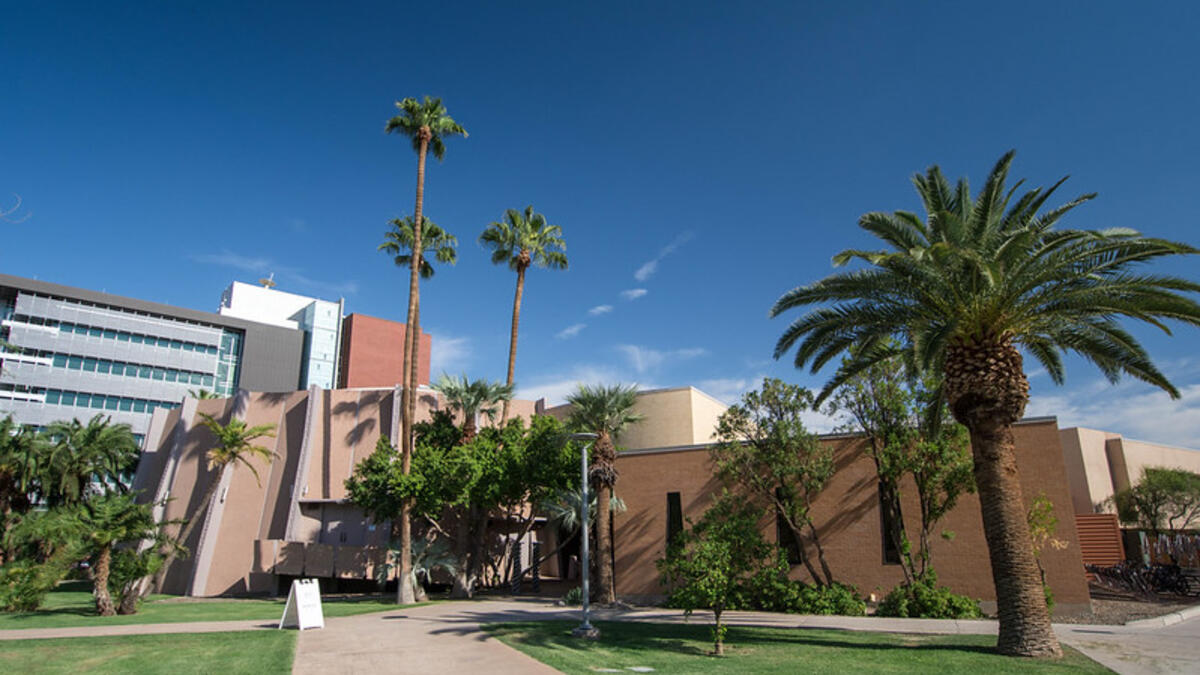The College of Liberal Arts and Sciences welcomes six new administrators to its leadership team this year. The professionals selected to lead four academic units and two research centers are talented scholars, teachers and leaders in their respective fields.
“The College is full of talented scholars and leaders that work hard to achieve growth and success for The College and the university as a whole,” said The College’s Dean and Executive Vice Provost of ASU Patrick Kenney. “We are fortunate to have high-caliber leaders starting with us this fall. I look forward to their continuing contributions to our students and ASU.”
As the academic heart of Arizona State University, The College fosters educational excellence across 21 academic units and over 50 research centers and institutes across the humanities, natural sciences and social sciences.
The leaders and faculty help grow and educate the next generation of professionals.
Meet The College’s new chairs and directors:
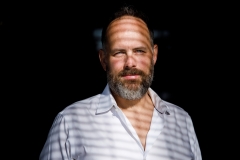
Gaymon Bennett
Gaymon Bennett, director, Lincoln Center for Applied Ethics
Bennett was recently named the director of the Lincoln Center for Applied Ethics. His research explores the intersections among religious studies, science, technology and society.
By taking over as the center's associate director in 2020, he helped assist the center in its transition to the humanities division at The College and its shift in focus to humane technology and ethical innovation.
His emphasis on collaboration and experimental practice as keys to ethics is demonstrated throughout the work of the Lincoln Center.
With Bennett now at the helm, the center will continue to expand on its implementation of the design studio model while also pursuing new opportunities in teaching, research and the facilitation of ethical inquiry.
“The team at the Lincoln Center has struck a chord in this new moment at the culmination of collective efforts at ASU to interrogate issues around collaborative research and playful experimentation,” Bennett said.
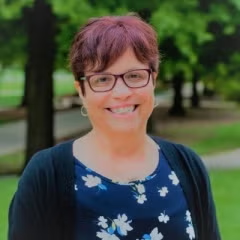
Stella Rouse
Stella Rouse, director, Hispanic Research Center
Rouse joins ASU to serve as the director of the Hispanic Research Center. Her research focuses on political science, specializing in identity, youth and Latino politics.
Rouse will also teach as a professor in the School of Politics and Global Studies. She is the author of several books discussing millennials in politics, Latinos in the legislative process, and political engagement and policy attitudes.
Her vision and ideas align with the university's hopes for the center, which include assuming “fundamental responsibility for the economic, social, cultural and overall health of the communities (ASU) serves,” as stated in ASU’s charter.
“I want this center to be one with ASU and the community. A place where not only local history gets preserved and displayed but also a place of belonging. The College and ASU are multidisciplinary, and I want to spread that knowledge and work in the Hispanic Research Center universitywide,” Rouse said.
Tamera Schneider, chair, Department of Psychology
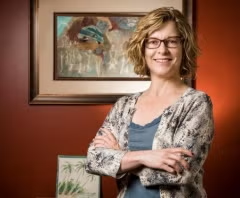
Tamera Schneider
Schneider joins ASU as the chair of the Department of Psychology. Her research examines social and health psychology and applied behavioral science.
A transdisciplinary scientist who values collaboration, a diversity of perspectives and public impact, Schneider is the first woman to serve as the Department of Psychology chair. She joins a stellar natural sciences leadership team who all happen to be women.
Most recently she served as the associate vice chancellor and university vice provost of research at the City University of New York (CUNY), where she oversaw research integrity and compliance, research development, and innovation and entrepreneurship.
“I’m thrilled to be joining ASU, and I look forward to enhancing the culture and capacity for collaboration in the Department of Psychology,” Schneider said. “The faculty and staff are engaged in such innovative and impactful work to understand the mind, brain and behavior, and they include students in immersive research experiences so they can collectively improve people’s lives and communities. It’s humbling to be a part of it.”

Güneş Murat Tezcür
Güneş Murat Tezcür, director, School of Politics and Global Studies
After spending eight years at the University of Central Florida, Tezcür joins ASU as the director of the School of Politics and Global Studies. His research examines political identity, violence and democratic circles in countries with contested stories.
Originally from Turkey, Tezcür came to the United States in 2000 to pursue his PhD. He plans to spend the beginning of his job collecting thoughts and opinions from the community and sees his duty as a director as one of leadership and guidance.
His vision for the school's future is connection, inclusion and encouragement. He hopes to serve in a way that advances students in achieving their goals and degrees.
“We want to make sure that if people come to ASU, they get lots of opportunities, like studying abroad and getting prestigious fellowships and getting competitive jobs, so it will also be my priority to create environments which contribute to these successes,” he said.
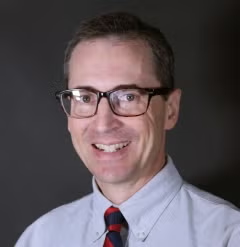
Mike Tueller
Mike Tueller, director, School of International Letters and Cultures
Tueller moves into the director role of the School of International Letters and Cultures after taking over in an interim capacity one year ago. His research focuses on Greek epigrams, which began as inscriptions on objects but soon became short poems featuring witty turns of phrase or thought.
After receiving his bachelor’s degree at Harvard University, Tueller served as an officer in the United States Navy for four years.
After five years of teaching at Brigham Young University, Tueller joined the faculty at ASU in 2008, teaching courses in ancient Greek language and literature. While at ASU, Tueller has dedicated his time to helping students cultivate their skills and forge their own paths.
“We do a lot of different things at the School of International Letters and Cultures and I am flattered that the university and The College believe that I can communicate and connect with all these groups in the unit,” he said. “I spent time during that interim year talking with people and discovering what is important to them. We have a lot of talented people in the school and I want to make sure I am channeling their ideas and what is important to them for the direction of the school.”
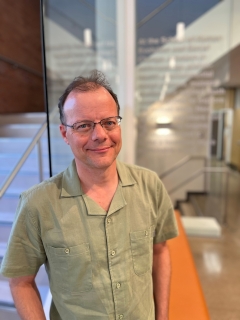
Ryan Williams
Ryan Williams, director, School of Human Evolution and Social Change
Williams is taking over as the director of the School of Human Evolution and Social Change. His research examines anthropology, ecology, geographic information systems and archaeology.
Previously, he worked with the Field Museum of Natural History in Chicago, where he served as the head of social sciences. In the two-plus decades he spent at the museum, Williams served in several teaching and administration roles, including curator, a chair of anthropology and an associate director of research.
Coming to ASU, Williams looks forward to engaging with all of the school’s communities, including faculty, staff and students, and continuing its impactful programs and community outreach.
“I’m excited to build on the success the School of Human Evolution and Social Change has created across all its approaches,” Williams said. “This school is the powerful innovator that it is because of the diversity of research approaches it engages and because it leverages those different disciplines in complementary ways to address humanity’s biggest questions.”
More Law, journalism and politics
Can elections results be counted quickly yet reliably?
Election results that are released as quickly as the public demands but are reliable enough to earn wide acceptance may not always be possible.At least that's what a bipartisan panel of elections…
Spring break trip to Hawaiʻi provides insight into Indigenous law
A group of Arizona State University law students spent a week in Hawaiʻi for spring break. And while they did take in some of the sites, sounds and tastes of the tropical destination, the trip…

LA journalists and officials gather to connect and salute fire coverage
Recognition of Los Angeles-area media coverage of the region’s January wildfires was the primary message as hundreds gathered at ASU California Center Broadway for an annual convening of journalists…


